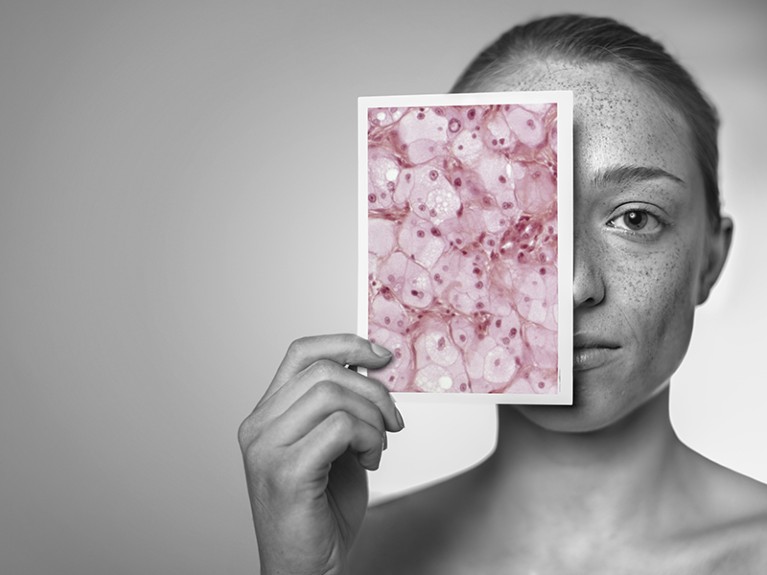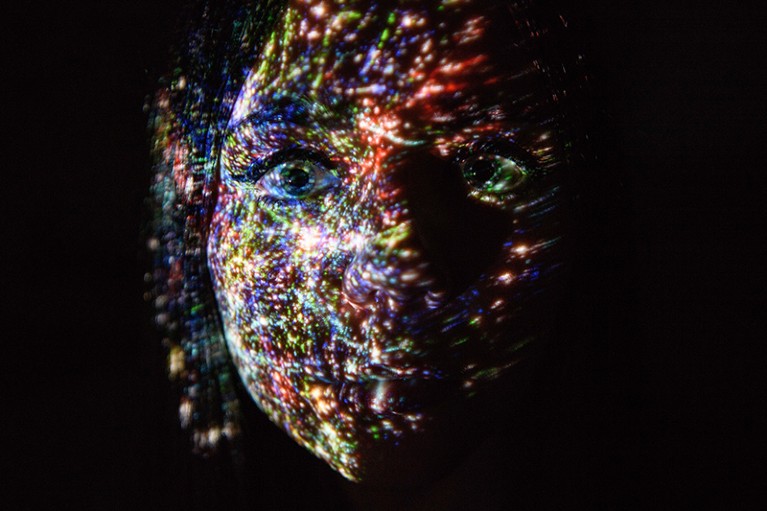Hello Nature readers, would you like to get this Briefing in your inbox free every day? Sign up here.

Skin has a high level of mosaicism compared to other tissues in the body.Credit: Science Photo Library
Your body is a mosaic
The largest survey of genetic data from ‘normal’ human tissues suggests that our bodies are mosaics riddled with mutations — including some that contribute to cancer. Tissue mosaics arise as cells accumulate mutations, caused by DNA errors that creep in during cell division, or by exposure to environmental factors such as ultraviolet light or cigarette smoke. Researchers now need to find ways to sort out which of those cells will become tumours and which are ‘normal’, says applied mathematician Critian Tomasetti.
medRxiv: preprints for medical science
Medical scientists now have a preprint server to share their results before peer review: medRxiv. Proponents say it will speed up information sharing in the field, which could be especially valuable during outbreaks of diseases such as Ebola. The preprint server’s founders have set up safeguards to alleviate some of the concerns that researchers have about unvetted clinical research being published online. For instance, authors will need to provide details of their study’s ethical approval and patient consent, and will need to disclose funding sources before they can post. Preprints will also be screened by a clinical scientist and a clinical editor.
Even low light can hurt sleep
For some people, even dim light before bed can disrupt sleep-hormone cycles. But people’s sensitivity varies greatly, which could help to explain why some are prone to circadian-rhythm disruption linked to illnesses such as bipolar disorder.
Nature Research Highlights | 1 min read
Get more of Nature’s Research Highlights: short picks from the latest papers.
FEATURES & OPINION
“He was a national treasure, and we hounded him to his death.”
On this day in 1954, computer scientist and cryptologist Alan Turing died, just a few days before his 42nd birthday. Turing’s “bridging of logic and machines laid the foundation for digital computers”, wrote Nature on the centenary of his birth. But his life and career were cut short by homophobic laws and discrimination. The New York Times has published a new obituary of Turing as part of its Overlooked series.
The New York Times | 10 min read
Read more: Turing at 100: Legacy of a universal mind (from 2012)
Microbes modifying medicine and kick-starting plate tectonics
In this week’s Nature Podcast, how gut microbes might be affecting drugs and how sediment may have lubricated the Earth’s tectonic plates.
Nature Podcast | 22 min listen
Subscribe to the Nature Podcast on iTunes or Google Podcasts.
BOOKS & ARTS

Digital lives could allow us to construct our own reality.Credit: Leon Neal/Getty
Frozen heads and virtual heavens
A new book from Neal Stephenson, a mash-up of fantasy and sci‑fi, offers a journey to a digital universe that expands in ways no one could have predicted. The rest of us can only sit mutely by and watch the spectacle in wonder, says physicist and author Paul McEuen.
Maverick of cancer immunology on film
A documentary about Nobel-prizewinning cancer researcher James Allison follows a familiar formula and is tinged with schmaltz, says reviewer Heidi Ledford. Still, the film gives some sense of how Allison’s passionate advocacy for the cancer drug he helped to develop kept it from being lost in the reject piles of the pharmaceutical industry.
Five best science books this week
Barbara Kiser’s pick of the top five science books to read this week includes a world history of imagination, mapping our cosmic context, and India’s urban forests.
INFOGRAPHIC OF THE WEEK

Venus surface: NASA/JPL; Illustration by Jasiek Krzysztofiak/Nature
